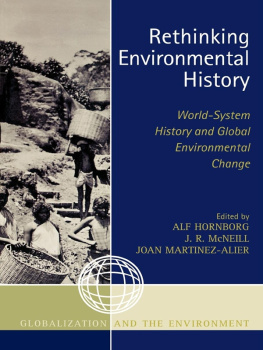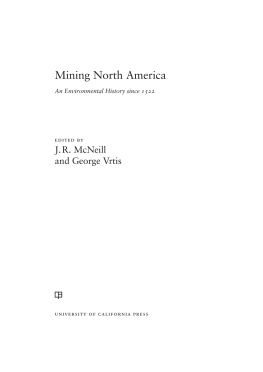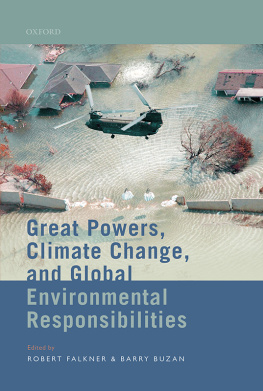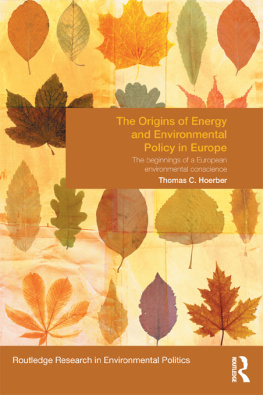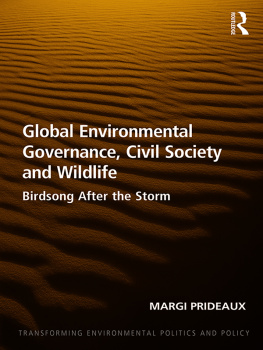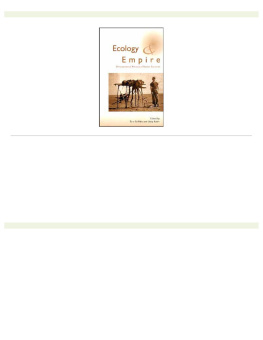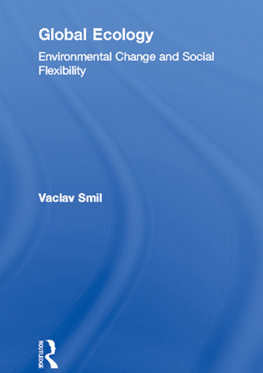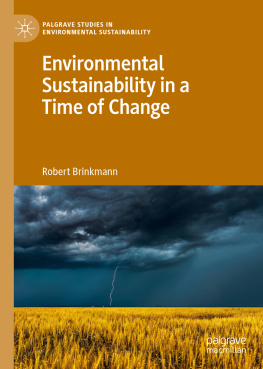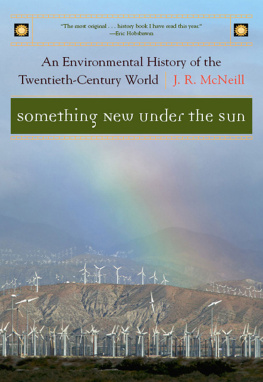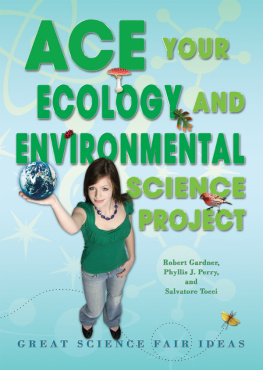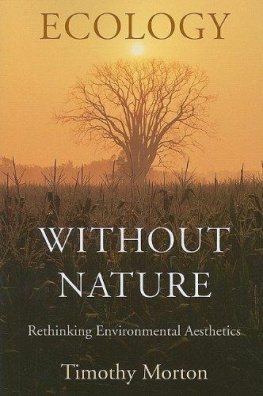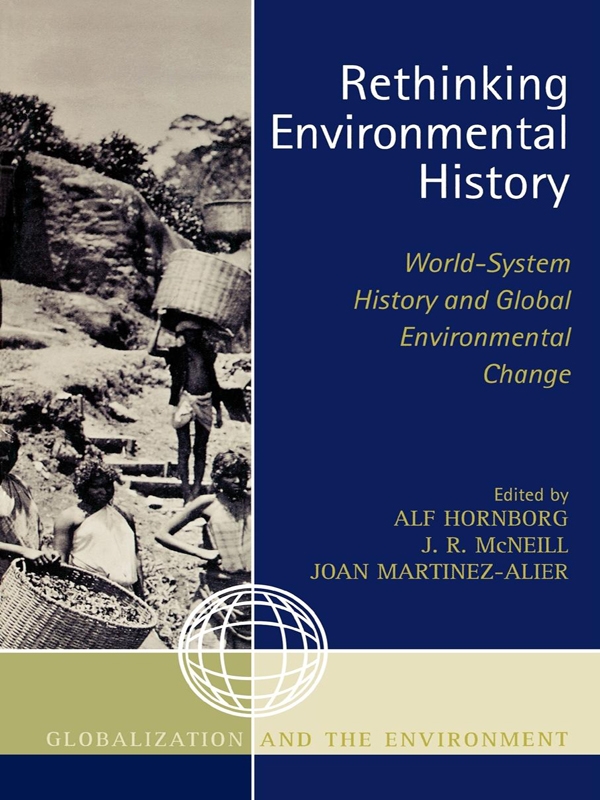This book is one of two volumes emerging from the conference on World-System History and Global Environmental Change, arranged by the Human Ecology Division of Lund University, Lund, Sweden, on September 1922, 2003. I gratefully acknowledge generous funding from the Bank of Sweden Tercentenary Foundation, which covered the bulk of our expenses, as well as additional funding from the Swedish International Development Cooperation Agency, the Swedish Research Council, the Swedish Environmental Protection Agency, and the Swedish Research Council for Environment, Agriculture, and Spatial Planning. I also want to thank Christian Isendahl for efficiently handling the practical details of conference organization, and my two coeditors, J. R. McNeill and Joan Martinez-Alier, for competently commenting on several chapters that particularly required the expertise of a historian or an economist. Finally, I thank Rosalie Robertson, Alden Perkins, Bess Vanrenen, and Sylvia Cannizzaro for helping me turn a pile of papers into a book.
About the Contributors
Stephen G. Bunker (19442005) was professor of sociology at the University of Wisconsin, Madison.
William H. Fisher is associate professor of anthropology at the College of William and Mary, Williamsburg.
Rafael A. Gassn is an archaeologist and coordinator of the postgraduate anthropology program at the Instituto Venezolano de Investigaciones Cientificas, Caracas.
Stefan Giljum is an ecological economist and researcher at the Sustainable Europe Research Institute, Vienna.
N. Thomas Hkansson is an anthropologist and associate professor of human ecology at Lund University.
Josiah Heyman is professor of anthropology and chair of the Department of Sociology and Anthropology at the University of Texas, El Paso.
Alf Hornborg is an anthropologist and professor of human ecology at Lund University.
J. Donald Hughes is John Evans Distinguished Professor of History at the University of Denver.
Andrew K. Jorgenson is assistant professor of sociology at Washington State University, Pullman.
Robert B. Marks is Richard and Billie Deihl Professor of History at Whittier College.
Joan Martinez-Alier is an ecological economist and professor of economic history at the Universitat Autonoma de Barcelona.
J. R. McNeill is professor of history at Georgetown University, Washington, D.C.
Jason W. Moore is a PhD candidate in the Department of Geography, University of California, Berkeley.
Roldan Muradian is an ecological economist and research fellow at the Development Research Institute, Tilburg University.
Janken Myrdal is professor of agricultural history at the Swedish University of Agricultural Sciences, Uppsala.
James Rice is assistant professor of sociology at New Mexico State University, Las Cruces.
Joseph A. Tainter is an anthropologist and research professor at the Global Institute of Sustainability, Arizona State University, Tempe.
Immanuel Wallerstein is a sociologist and senior research scholar at Yale University, New Haven.
Helga Weisz is a biologist and associate professor at the Institute for Social Ecology, Klagenfurt University, Vienna.
Mats Widgren is professor of geography at Stockholm University.
Richard Wilk is professor of anthropology and gender studies, Indiana University, Bloomington.
Michael Williams recently retired as professor of geography in the School of Geography and the Environment, University of Oxford.
Environmental Impacts of the Roman Economy and Social Structure: Augustus to Diocletian
J. DONALD HUGHES
D URING THE THREE hundred years after its founding by Augustus Caesar (27 BCAD 14), the Roman Empire first reached a peak of economic growth and prosperity, and then suffered a severe crisis and decline (Hughes 2005:196213), so that by the end of this period the emperor Diocletian (284305), a responsible ruler, believed it necessary to enact a coordinated series of measures designed to rescue the economy. This historical process took place within a context of environmental deterioration and resource depletion. Roman economic activity produced profound and long-lasting impacts on the landscape of the empire. Exploitation of forests, hunting and fishing, mining and metallurgy, pastoralism and agriculture, all meant the transformation of major segments of the ancient environment. Roman trade extended outside the empire, and had its effects on landscapes there also.
The Social Structure of the Roman Empire
The economy of the Roman Empire was organized primarily to benefit the upper strata of society: the landlords rather than the peasantry, the rich rather than the poor, the masters and certainly not the slaves. Above all, power and economic benefit were concentrated in the office of the emperor and in his household. The emperor controlled a separate treasury and his edicts had the force of law. The emperor could affect the economic structure and thus environmental impact, although it must be noted that Roman understanding of economic policy was limited, and that nothing like environmental policy existed.
A word about the social standing of women is appropriate at the outset. The Roman tradition was extremely patriarchal in the sense that a womans status was determined by that of the man to whom she was primarily related: her father before her marriage, her husband during marriage, her son during widowhood, and a related male guardian if none of the previously named relationships obtained. She would be a member of the class to which the man belonged, but could not exercise direct political or legal participation. A woman might be of citizen class, but she was not a citizen. For example, there were no female senators or magistrates. There was often an empress ( Augusta ), but only in relationship to a male emperor. At the same time, upper-class women could wield considerable political and economic power through or on behalf of their husbands or other related men. Their influence in terms of environmental impact was, therefore, considerable. Whenever the masculine pronoun is encountered in what follows, therefore, this fact should be remembered.
The Upper Classes
The Roman class structure began in the single city-state of Rome and had spread across an empire that surrounded the Mediterranean Sea during the centuries before Augustus. The upper classes ( honestiores ) were designated both in terms of family and wealth. The three upper classes were the senators, equites, and decurions.
Highest among these were the senators, originally the descendants of patrician families, but augmented by worthy and wealthy plebeians and, by imperial times, powerful colonial and provincial leaders. Qualification as a senator required property in the form of landed estate. The influence of this class in terms of environmental impacts was paramount, since its members owned a major fraction of the land and along with the emperor had a determining role in legislation. Many of them owned extensive ranches ( latifundia ) where cattle, sheep, pigs, and various agricultural goods were produced including oil, wine, grains, and cloth. They might invest in various enterprises, but social and sometimes legal barriers kept them from direct involvement in trade and commerce.
The second class consisted of equites (equestrians), who were required to be freeborn (the emperor Tiberius added the qualification of two generations of free birth) and to have property. This class included an aristocratic Roman core, leading men from the colonies, and businessmen ( negotiatores ). Its members held important public offices including the prefectures in charge of supplying the cities with food and other necessities. The principal tax collectors (publicans) were equites. This class was the leading force in trade and commerce, organizing markets, investing in shipping, and controlling trade in such products as grain, wine, and oil. Crucial to the treatment of the environment, equites formed consortia ( societates ) to control the exploitation of important state-owned natural resources such as mines, quarries, and forests (Rostovtzeff 1971:110).

